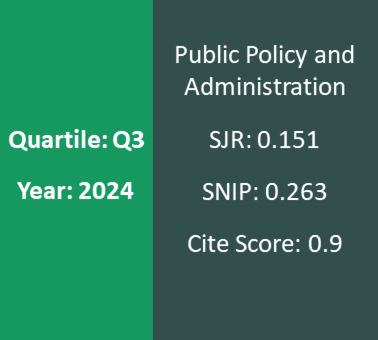Why Are the Citizens Reluctant to Respond to the Administrative Reforms: Metaevaluation of the Strategies and Trends of the Public Management Reforms in Finland in the 1990's
Keywords:
administrative reform, citizens participation, new public management.Abstract
The tensions between the administrative reform plans and their impact on effectiveness and legitimation of
the politico-administrative system have both theoretically and practically been important and interesting
questions in administrative sciences. The aim of this article is firstly to give a comprehensive evaluation
summary of the profile and success or failure of the administrative reforms in the 1990's in Finland. Heavy
economic depression and changes in international environment with the collapse of Soviet Union and
membership in the European Union caused an active reform wave in the Finnish public administration. The
main target of the reformers was to modernise the structures, steering systems and administrative culture of the
administrative machinery to meet new challenges of administration. The international New Public Management
(NPM) doctrine had clear impact on Finnish reform activities. These reforms have been successful in causing
many real changes in Finnish administration. In spite of that, the citizen reactions have been passive and even
negative concerning legitimation of the modernised administration. In this article there are some
considerations of the reasons and backgrounds of citizen response and trust in the NPM-type administrative
reforms. Partly the citizen response seems to be slow and depending more of real changes in every day life than
political reform decisions. Partly it seems to be a “winners’ and losers’ game” in which the losers' response is
loud and even aggressive and winners are mainly passive. In fact the case of Finland shows how much NPMtype
reform programme can be described as a structural and cultural renovation of systems which can create
more efficiency and service-orientation in the administration, but these impacts are instrumental, indirect and
time taking.





